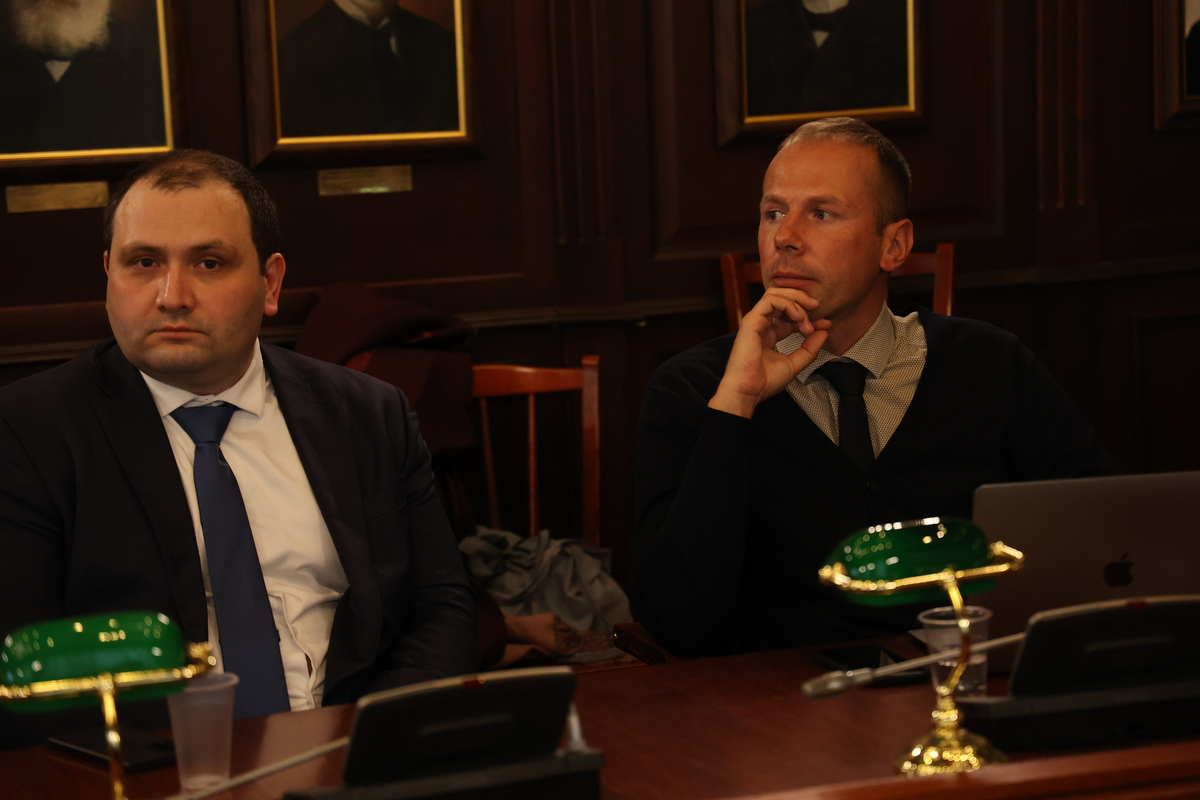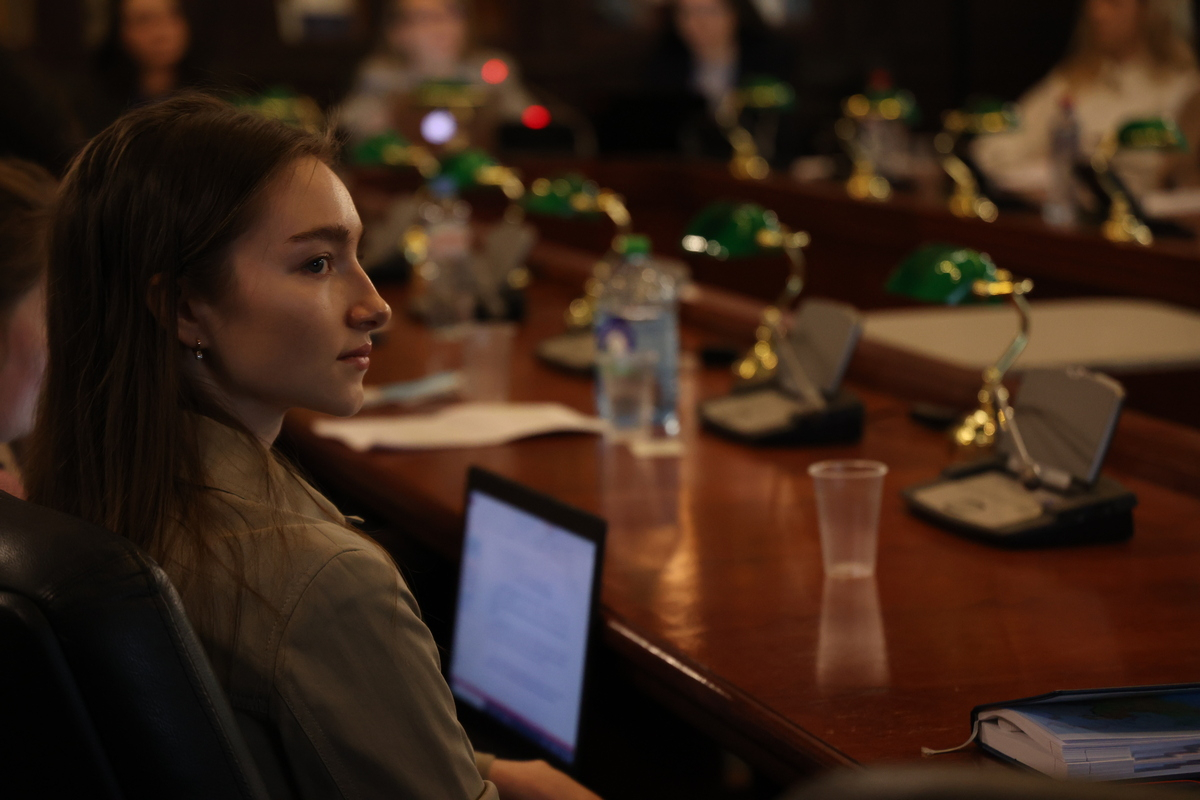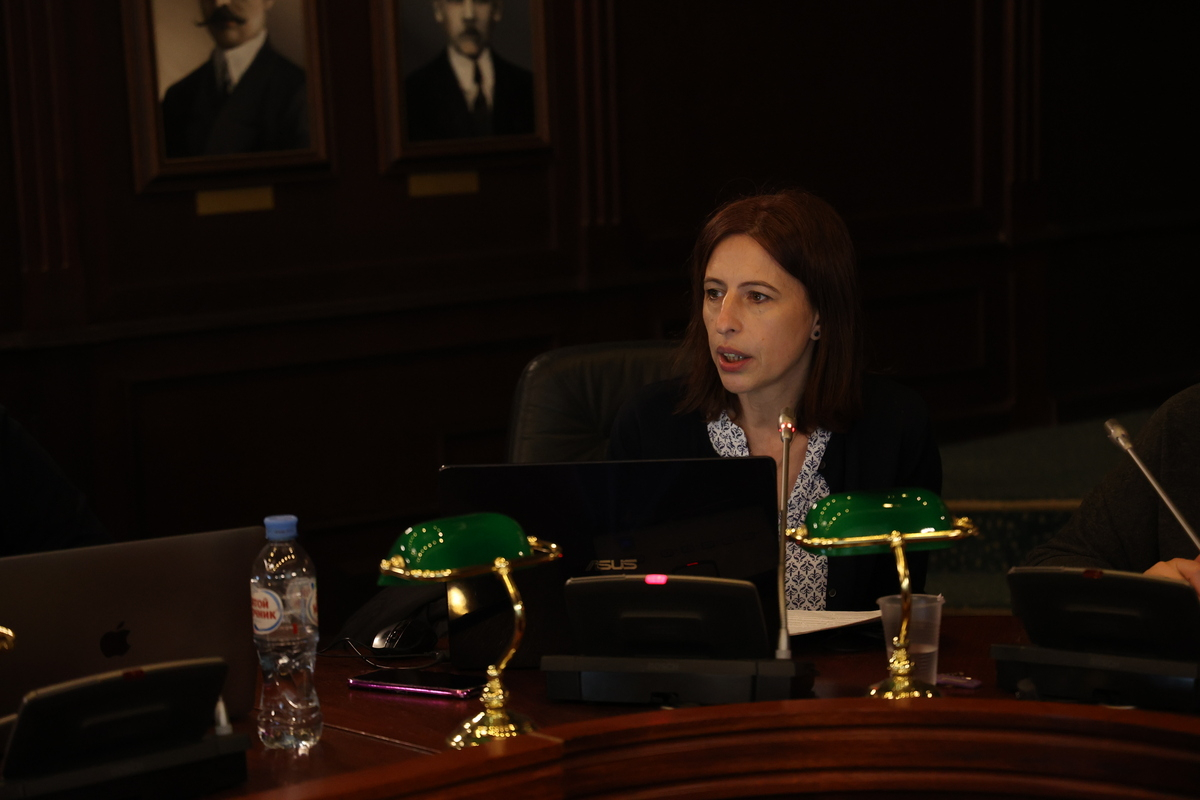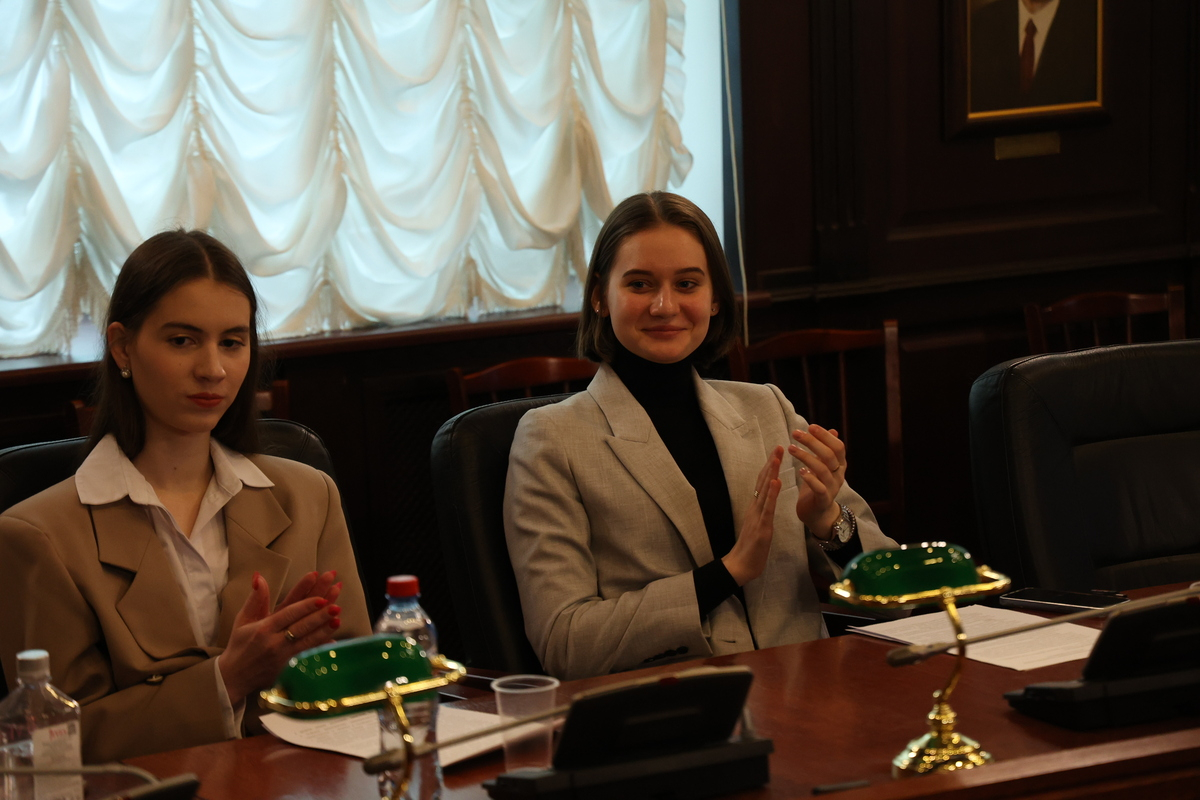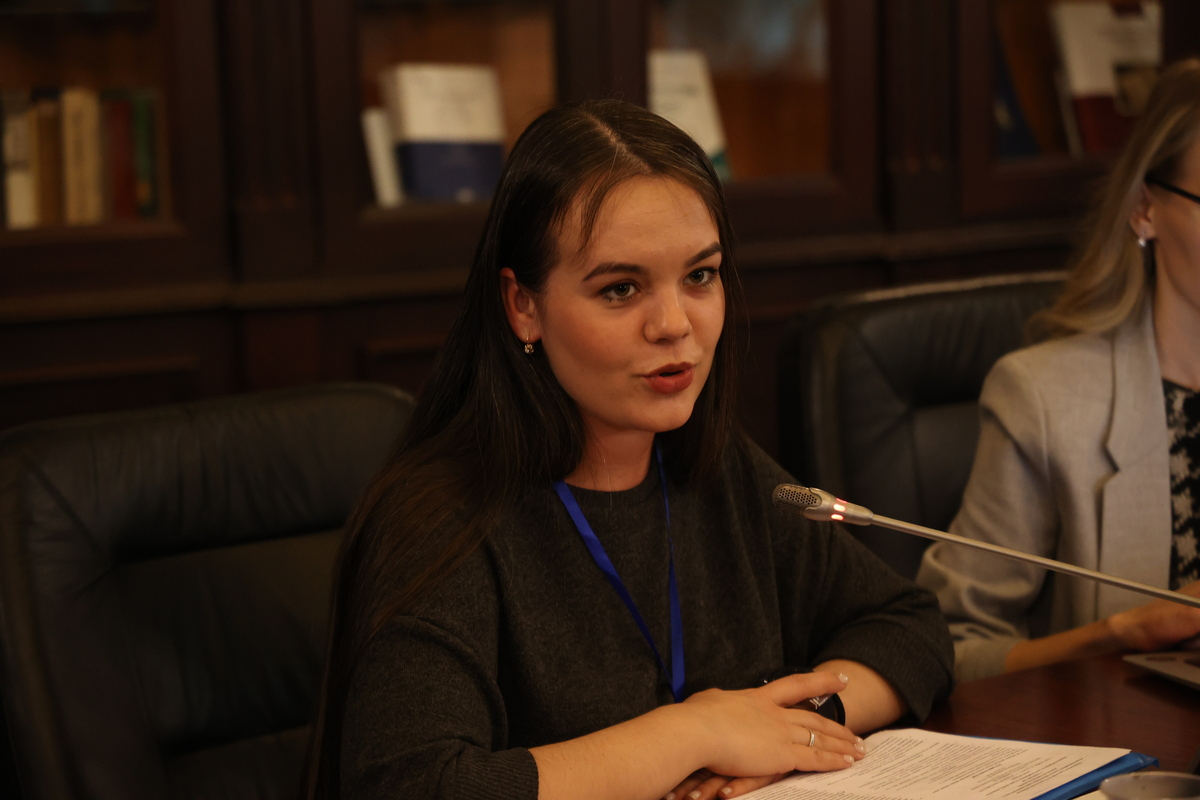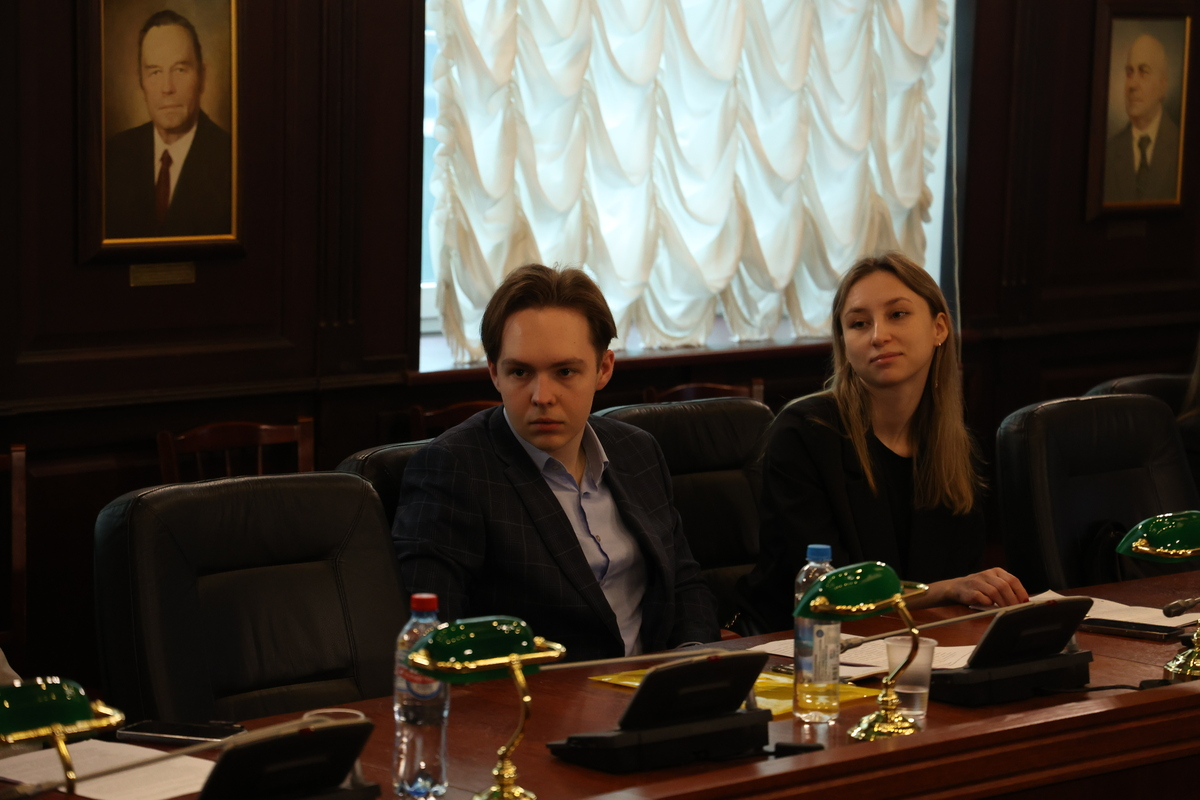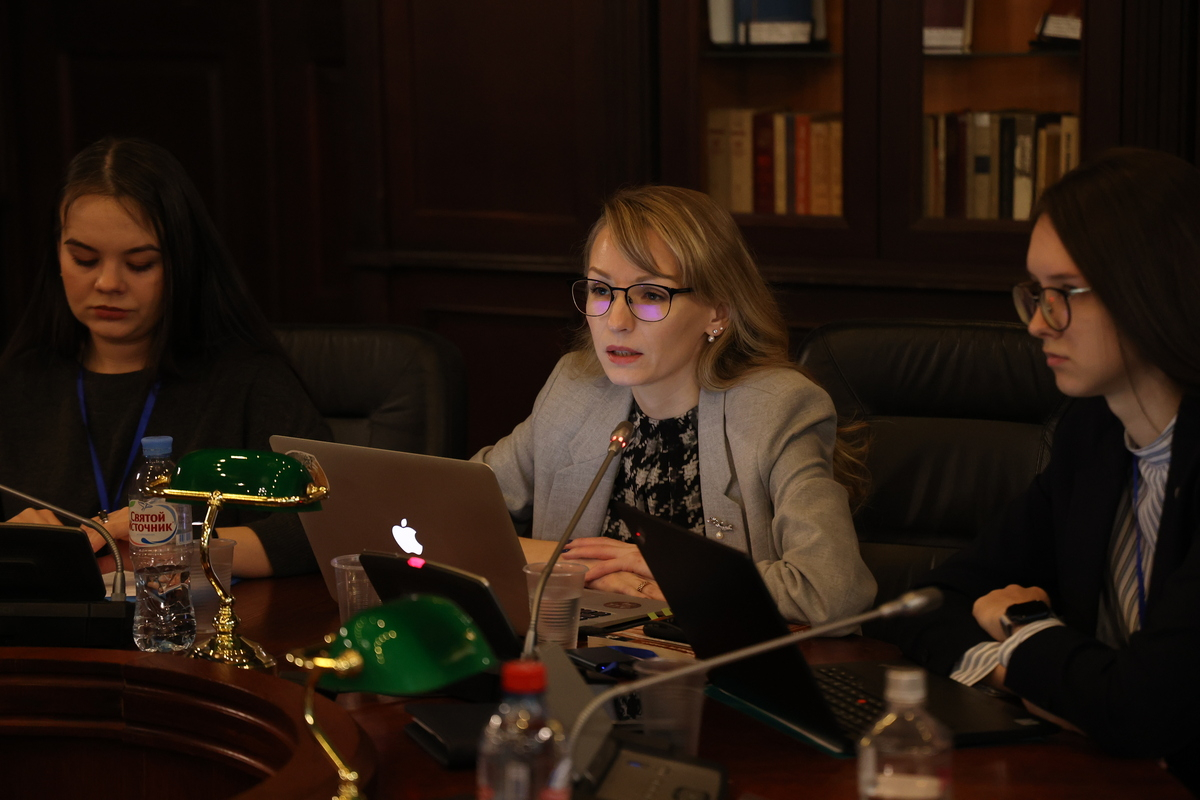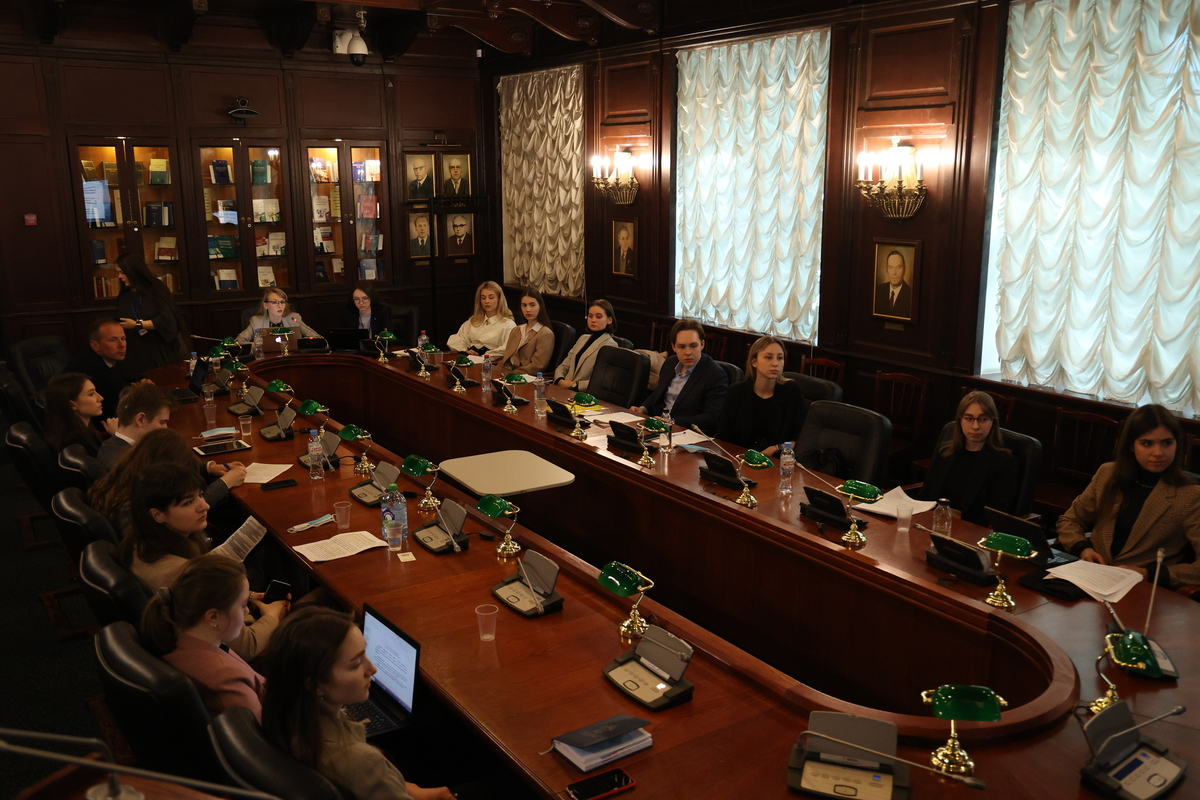Young scholars of St Petersburg University explain how consumers are to understand that they buy eco-friendly products
St Petersburg University has held a conference on legal issues involved in environmental protection and use of natural resources. Expert lawyers from the University and young scholars from the Russian universities discussed: what the green economy is; how countries are reducing their carbon footprint; and whether renewables are likely to replace the traditional energy sources in the near future.
All-Russia student scientific and practical conference "Topical problems of legal regulation of environmental protection and conscious use of natural resources" has been held at the University for the first time. The conference was attended by representatives of: St Petersburg University; St Petersburg Law Institute (branch) of the University of the General Prosecutor’s Office of the Russian Federation; Siberian Federal University; National Research Tomsk State University; Kutafin Moscow State Law University; North-Eastern Federal University in Yakutsk; Saratov State Law Academy; Udmurt State University; and other law schools of the country.
During the conference, professors and students delivered speeches on: waste disposal; development of law in the sphere of protection of people’s environmental rights; public access to land plots for public needs; and conscious use of natural resources.
One of the tools of environmental protection and use of natural resources is development of green energy and the use of renewables.
Among them, for instance, are solar, wind or water power. Such sources do not exhaust and can be used infinitely. Despite the fact that their use is growing year by year the global energy consumption is also on the rise. The oil and gas sector are being intensively developed, to the detriment of the green energy effect.
In Russia, renewables account for not more than 1% of the total energy. Compare it with Denmark, where 40% of the total energy is produced by windmills alone. The problem lies in lack of investment into this industry, and lack of interest in its development. This is because alternative energy is relatively expensive and not in demand so far, compared to traditional energy sources. The scholars also spoke about lack of development of the legal base which could regulate the use of environmentally friendly energy. The speakers pointed out that according to forecasts even by 2050 the global community will not be able to have half of the energy produced from alternative sources.
Another task is to decrease the carbon footprint which influences the global climate change.
The rising temperatures are related to increased concentration of greenhouse gases in the atmosphere. Today, China is the leading carbon dioxide emitter. Despite the country’s stance on shifting to the alternative energy sources it still remains the biggest coal consumer. Yet by 2060 China, according to its leader, is planning to become carbon-neutral, which means it will phase out its carbon dioxide and similar emissions in production.
In the Russian Federation, an experiment in development of the system of emissions control and quoting has been proposed. This means that for exceeding the limits the production facilities will have to comply with the quota given to them. Similar measures are in force all over the world, and the EU countries have stated they are planning to become carbon-neutral by 2050.
Among the issues discussed by the young scholars was environmental marketing, which is promotion of eco-friendly goods and services. Such goods are usually designated as "bio", "eco", "organic" and the like, to prove they are environmentally friendly. The scholars spoke about fragmented legal regulation and lack of encouragement of voluntary environmental certification. If producers fraudulently mark the goods as environmentally friendly, in compliance with the law they can be held liable under articles providing for consumer rights protection or unfair competition. The goods with proven eco-friendly status receives the "Vitality Leaf" certificate.


